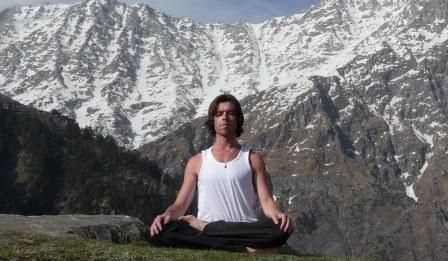Pope Francis was interviewed by Eugenio Scalfari (not to define him, but an outspoken atheist) for Repubblica. The Pope’s answers to some questions are nothing short of amazing.
The meeting with Pope Francis took place last Tuesday at his home in Santa Marta, in a small bare room with a table and five or six chairs and a painting on the wall. It had been preceded by a phone call I will never forget as long as I live.
It was half past two in the afternoon. My phone rings and in a somewhat shaky voice my secretary tells me: “I have the Pope on the line. I’ll put him through immediately.”
I was still stunned when I heard the voice of His Holiness on the other end of a the line saying, “Hello, this is Pope Francis.” “Hello Your Holiness”, I say and then, “I am shocked I did not expect you to call me.” “Why so surprised? You wrote me a letter asking to meet me in person. I had the same wish, so I’m calling to fix an appointment. Let me look at my diary: I can’t do Wednesday, nor Monday, would Tuesday suit you?”
I answer, that’s fine.
My friends think it is you want to convert me?
He smiles again and replies: “Proselytism is solemn nonsense, it makes no sense. We need to get to know each other, listen to each other and improve our knowledge of the world around us. Sometimes after a meeting I want to arrange another one because new ideas are born and I discover new needs. This is important: to get to know people, listen, expand the circle of ideas. The world is crisscrossed by roads that come closer together and move apart, but the important thing is that they lead towards the Good.”
Your Holiness, is there is a single vision of the Good? And who decides what it is?
“Each of us has a vision of good and of evil. We have to encourage people to move towards what they think is Good.”
Yes, I know what Agape is.
“It is love of others, as our Lord preached. It is not proselytizing, it is love. Love for one’s neighbor, that leavening that serves the common good.”
Jesus in his preaching said that agape, love for others, is the only way to love God. Correct me if I’m wrong.
“You’re not wrong. The Son of God became incarnate in the souls of men to instill the feeling of brotherhood. All are brothers and all children of God. Abba, as he called the Father. I will show you the way, he said. Follow me and you will find the Father and you will all be his children and he will take delight in you. Agape, the love of each one of us for the other, from the closest to the furthest, is in fact the only way that Jesus has given us to find the way of salvation and of the Beatitudes.”
Many church leaders have been.
“You know what I think about this? Heads of the Church have often been narcissists, flattered and thrilled by their courtiers. The court is the leprosy of the papacy.”
You heard your calling at a young age?
“No, not very young. My family wanted me to have a different profession, to work, earn some money. I went to university. I also had a teacher for whom I had a lot of respect and developed a friendship and who was a fervent communist. She often read Communist Party texts to me and gave them to me to read. So I also got to know that very materialistic conception. I remember that she also gave me the statement from the American Communists in defense of the Rosenbergs, who had been sentenced to death. The woman I’m talking about was later arrested, tortured and killed by the dictatorship then ruling in Argentina.”
You explained the importance of Paul and the role he played, but I want to know which of those you named feels closer to your soul?
“You’re asking me for a ranking, but classifications are for sports or things like that. I could tell you the name of the best footballers in Argentina. But the saints…”
And you think that mystics have been important for the Church?
“They have been fundamental. A religion without mystics is a philosophy.”
Has that ever happened to you?
“Rarely. For example, when the conclave elected me Pope. Before I accepted I asked if I could spend a few minutes in the room next to the one with the balcony overlooking the square. My head was completely empty and I was seized by a great anxiety. To make it go way and relax I closed my eyes and made every thought disappear, even the thought of refusing to accept the position, as the liturgical procedure allows. I closed my eyes and I no longer had any anxiety or emotion. At a certain point I was filled with a great light. It lasted a moment, but to me it seemed very long. Then the light faded, I got up suddenly and walked into the room where the cardinals were waiting and the table on which was the act of acceptance. I signed it, the Cardinal Camerlengo countersigned it and then on the balcony there was the ‘”Habemus Papam”.
Do you feel touched by grace?
“No one can know that. Grace is not part of consciousness, it is the amount of light in our souls, not knowledge nor reason. Even you, without knowing it, could be touched by grace.”
And St. Francis?
“He’s great because he is everything. He is a man who wants to do things, wants to build, he founded an order and its rules, he is an itinerant and a missionary, a poet and a prophet, he is mystical. He found evil in himself and rooted it out. He loved nature, animals, the blade of grass on the lawn and the birds flying in the sky. But above all he loved people, children, old people, women. He is the most shining example of that agape we talked about earlier.”
You Christians are now a minority. Even in Italy, which is known as the pope’s backyard. Practicing Catholics, according to some polls, are between 8 and 15 percent. Those who say they are Catholic but in fact are not very are about 20%. In the world, there are a billion Catholics or more, and with other Christian churches there are over a billion and a half, but the population of the planet is 6 or 7 billion people. There are certainly many of you, especially in Africa and Latin America, but you are a minority.
“We always have been but the issue today is not that. Personally I think that being a minority is actually a strength. We have to be a leavening of life and love and the leavening is infinitely smaller than the mass of fruits, flowers and trees that are born out of it. I believe I have already said that our goal is not to proselytize but to listen to needs, desires and disappointments, despair, hope. We must restore hope to young people, help the old, be open to the future, spread love. Be poor among the poor. We need to include the excluded and preach peace. Vatican II, inspired by Pope Paul VI and John, decided to look to the future with a modern spirit and to be open to modern culture. The Council Fathers knew that being open to modern culture meant religious ecumenism and dialogue with non-believers. But afterwards very little was done in that direction. I have the humility and ambition to want to do something.”
I am grateful for this question. The answer is this: I believe in Being, that is in the tissue from which forms, bodies arise.
“And I believe in God, not in a Catholic God, there is no Catholic God, there is God and I believe in Jesus Christ, his incarnation. Jesus is my teacher and my pastor, but God, the Father, Abba, is the light and the Creator. This is my Being. Do you think we are very far apart?”
(Scalfari gives the pope his view on the world.)
“All right. I did not want you to give me a summary of your philosophy and what you have told me is enough for me. From my point of view, God is the light that illuminates the darkness, even if it does not dissolve it, and a spark of divine light is within each of us. In the letter I wrote to you, you will remember I said that our species will end but the light of God will not end and at that point it will invade all souls and it will all be in everyone.”



